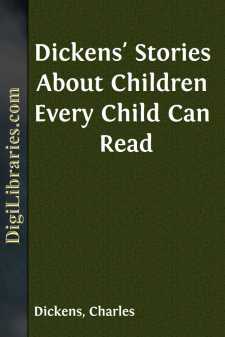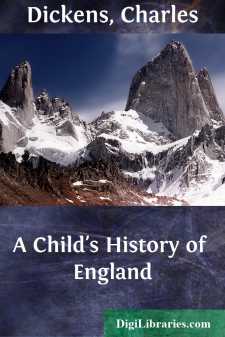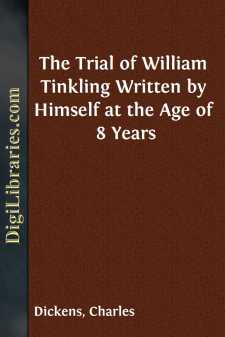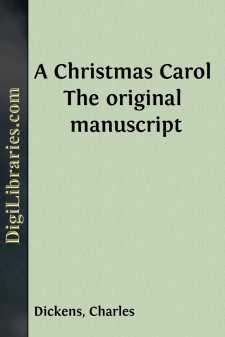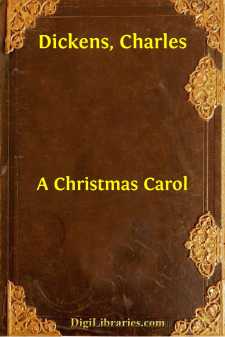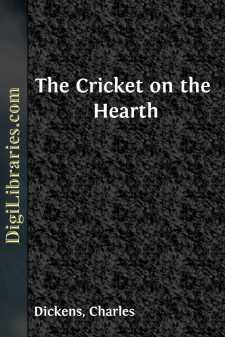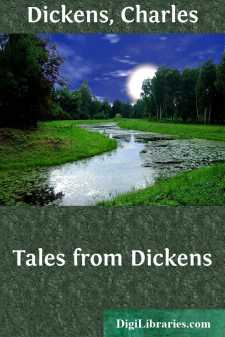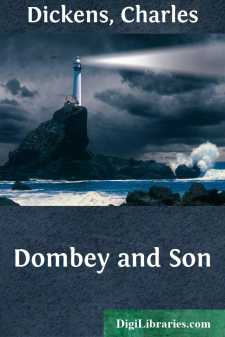Categories
- Antiques & Collectibles 13
- Architecture 36
- Art 48
- Bibles 22
- Biography & Autobiography 813
- Body, Mind & Spirit 142
- Business & Economics 28
- Children's Books 16
- Children's Fiction 13
- Computers 4
- Cooking 94
- Crafts & Hobbies 4
- Drama 346
- Education 46
- Family & Relationships 57
- Fiction 11829
- Games 19
- Gardening 17
- Health & Fitness 34
- History 1377
- House & Home 1
- Humor 147
- Juvenile Fiction 1873
- Juvenile Nonfiction 202
- Language Arts & Disciplines 88
- Law 16
- Literary Collections 686
- Literary Criticism 179
- Mathematics 13
- Medical 41
- Music 40
- Nature 179
- Non-Classifiable 1768
- Performing Arts 7
- Periodicals 1453
- Philosophy 64
- Photography 2
- Poetry 896
- Political Science 203
- Psychology 42
- Reference 154
- Religion 513
- Science 126
- Self-Help 84
- Social Science 81
- Sports & Recreation 34
- Study Aids 3
- Technology & Engineering 59
- Transportation 23
- Travel 463
- True Crime 29
Charles Dickens
Charles Dickens was a renowned English writer and social critic, born on February 7, 1812, and is celebrated for his vivid characters and depictions of Victorian society. Among his most famous works are "A Tale of Two Cities," "Oliver Twist," and "Great Expectations," which continue to be widely read and studied today. Dickens' literature often highlighted social injustices and the plight of the poor, contributing significantly to social reform in 19th-century England.
Author's Books:
Sort by:
by:
Charles Dickens
TROTTY VECK AND HIS DAUGHTER MEG."TROTTY" seems a strange name for an old man, but it was given to Toby Veck because of his always going at a trot to do his errands; for he was a ticket porter or messenger and his office was to take letters and messages for people who were in too great a hurry to send them by post, which in those days was neither so cheap nor so quick as it is now. He did not...
more...
by:
Charles Dickens
Introduces all the Rest There once lived, in a sequestered part of the county of Devonshire, one Mr Godfrey Nickleby: a worthy gentleman, who, taking it into his head rather late in life that he must get married, and not being young enough or rich enough to aspire to the hand of a lady of fortune, had wedded an old flame out of mere attachment, who in her turn had taken him for the same reason. Thus...
more...
by:
Charles Dickens
CHAPTER I—ANCIENT ENGLAND AND THE ROMANS If you look at a Map of the World, you will see, in the left-hand upper corner of the Eastern Hemisphere, two Islands lying in the sea. They are England and Scotland, and Ireland. England and Scotland form the greater part of these Islands. Ireland is the next in size. The little neighbouring islands, which are so small upon the Map as to be mere dots,...
more...
by:
Charles Dickens
FOREWORD The story contained herein was written by Charles Dickens in 1867. It is the first of four stories entitled "Holiday Romance" and was published originally in a children's magazine in America. It purports to be written by a child aged eight. It was republished in England in "All the Year Round" in 1868. For this and four other Christmas pieces Dickens received £1,000....
more...
by:
Charles Dickens
MARLEY'S GHOST. Marley was dead: to begin with. There is no doubt whatever about that. The register of his burial was signed by the clergyman, the clerk, the undertaker, and the chief mourner. Scrooge signed it: and Scrooge's name was good upon 'Change, for anything he chose to put his hand to. Old Marley was as dead as a door-nail. Mind! I don't mean to say that I know, of my own...
more...
by:
Charles Dickens
INTRODUCTION The combined qualities of the realist and the idealist which Dickens possessed to a remarkable degree, together with his naturally jovial attitude toward life in general, seem to have given him a remarkably happy feeling toward Christmas, though the privations and hardships of his boyhood could have allowed him but little real experience with this day of days. Dickens gave his first formal...
more...
by:
Charles Dickens
CHIRP THE FIRST The kettle began it! Don't tell me what Mrs. Peerybingle said. I know better. Mrs. Peerybingle may leave it on record to the end of time that she couldn't say which of them began it; but I say the kettle did. I ought to know, I hope? The kettle began it, full five minutes by the little waxy-faced Dutch clock in the corner, before the Cricket uttered a chirp. As if the clock...
more...
by:
Charles Dickens
CHARLES DICKENS Charles John Huffham Dickens, the master story-teller, was born in Landport, England, February 7, 1812. His father was a clerk in one of the offices of the Navy, and he was one of eight children. When he was four years old, his father moved to the town of Chatham, near the old city of Rochester. Round about are chalk hills, green lanes, forests and marshes, and amid such scenes the...
more...
by:
Charles Dickens
CHAPTER 1. Dombey and Son Dombey sat in the corner of the darkened room in the great arm-chair by the bedside, and Son lay tucked up warm in a little basket bedstead, carefully disposed on a low settee immediately in front of the fire and close to it, as if his constitution were analogous to that of a muffin, and it was essential to toast him brown while he was very new. Dombey was about...
more...
by:
Charles Dickens
CHAPTER 1 Night is generally my time for walking. In the summer I often leave home early in the morning, and roam about fields and lanes all day, or even escape for days or weeks together; but, saving in the country, I seldom go out until after dark, though, Heaven be thanked, I love its light and feel the cheerfulness it sheds upon the earth, as much as any creature living. I have fallen insensibly...
more...


